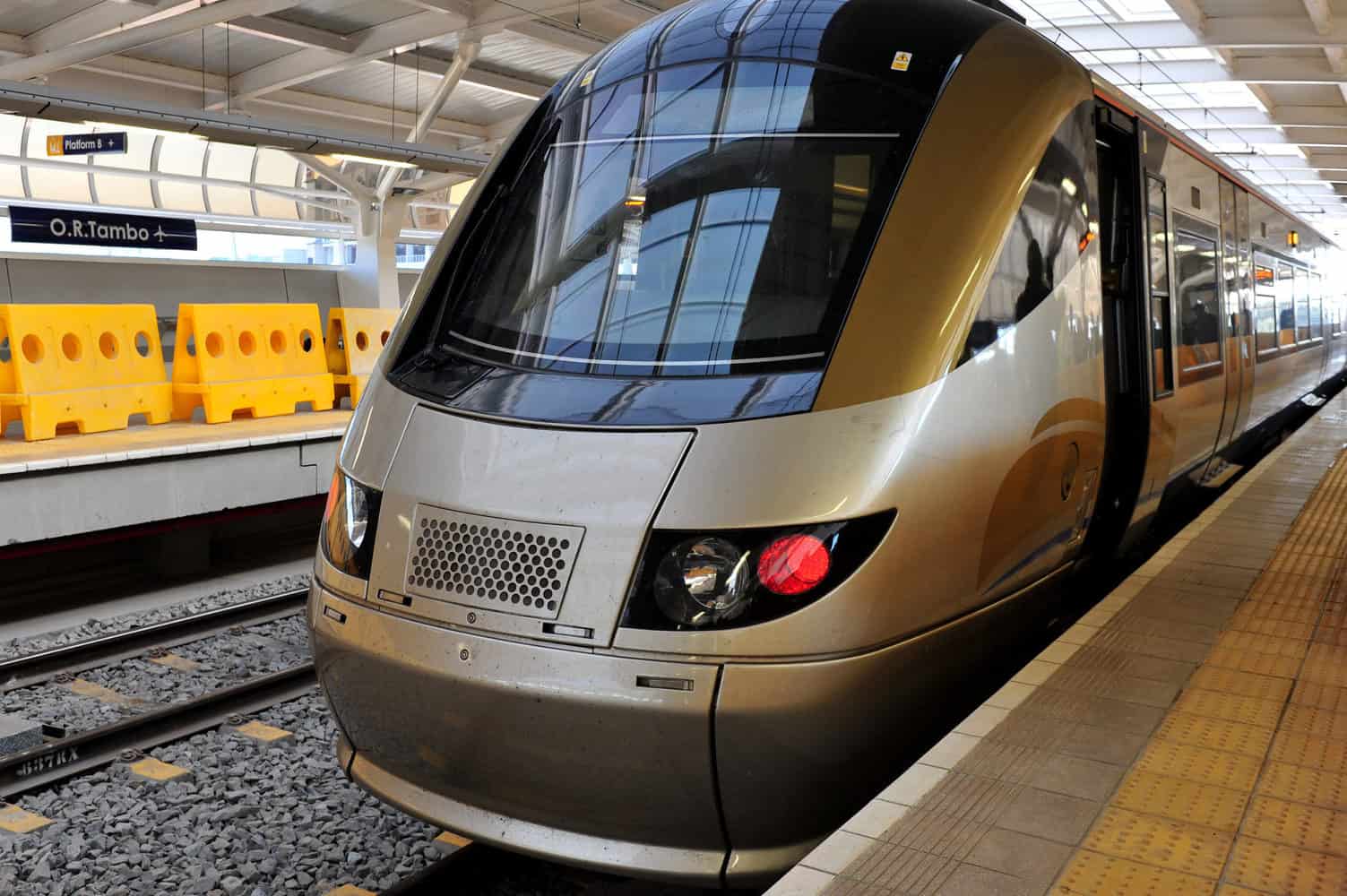Gautrain Management Agency refutes AA criticism that it was a ‘poor financial decision to allocate funds to a failing system’.

South Africa must avoid a future where those who can afford private cars continue to use them and where public transport is used by those with no other option, says Gautrain Management Agency (GMA) CEO William Dachs.
“Public transport is for everyone. We don’t believe that reliance on private cars is sustainable, and the Gauteng Provincial Government is committed to growing and expanding the rail network so that it can function as the backbone of public transport in the province,” he said on Monday.
Dachs stressed that the dual challenges lie in making these services affordable to more people and in better integrating them with other modes of transport.
“This is what the Competition Commission said in their final report,” he said.
Market inquiry
This comment is a reference to the Competition Commission’s preliminary report into its market inquiry into land-based public passenger transport released in February 2019, which among things, said it believed the Gautrain was a big policy mistake and recommended the Gauteng Provincial Government take over Metro Rail and integrate it with the Gautrain to run “a single system that doesn’t separate people according to class”.
Dachs said the proposed extensions to the Gautrain route network will be addressing these issues, among others, in accordance with the new National Rail Policy.
He said the GMA has also done a lot of work around public transport integration through its partnership with the taxi associations.
Dachs made these comments in response to criticism by the Automobile Association (AA) about the planned expansion of the route.
This was in response to an announcement by Gauteng MEC for Public Transport and Roads Infrastructure Jacob Mamabolo that the route determination for phase one of the proposed expansion to the Gautrain route had been published in the Gauteng Provincial Gazette, which was “an important milestone” in the province’s rail planning process.
AA spells out its concerns
However, the AA said the route determination for the proposed expansion “disregards factual evidence opposing such a move, and underscores the poor financial decision to allocate funds to a failing system”.
The association said the proposed expansion must be rejected and urged national government to halt any discussions regarding the funding of such expansions.
“In August last year we made a detailed submission outlining our concerns about the expansion of Gautrain.
“Any expansion of Gautrain perpetuates a system which caters for a minority of citizens, all the while costing Gauteng taxpayers billions of rands to prop up through the so-called patronage guarantee, which compensates the system for low ridership levels,” it said.
The AA added that when considering the serious economic challenges in South Africa, the fact that taxpayer money is effectively being used to compensate a private entity for non-performance “is outrageous and deeply disturbing” and “makes a mockery of government’s stated goal of ensuring fiscal responsibility”.
The association said the GMA in 2021, through funding from the Gauteng Provincial Government, paid the privately-owned Bombela Concession Company a patronage guarantee of R2.014 billion while the patronage guarantee paid in 2020 was R1.9 billion.
“Since 2013, Gauteng taxpayers have funded the shortfall of riders on the Gautrain by close to R13 billion.
“And, because of the built-in insurance for poor performance through the patronage guarantee, less money is available in Gauteng for transport projects which can cater for the majority of citizens who do not have access to the Gautrain.
“The fact remains that the Gautrain serves people who already have transport options. The large parking infrastructure at Gautrain stations attests to this,” said the AA.
“This, along with a raft of other issues, is detailed in the submission we made last year.
“Sadly, we have received no feedback on our concerns, and it appears the MEC has disregarded the input of civil society on a matter which has huge financial implications for all citizens of the province,” it said.
The AA said it will write to the ministers of finance and transport, as well as to Parliament’s Standing Committee on Finance and the Portfolio Committee on Transport, to seek clarity on the planned funding for the extensions.
“There is no justifiable reason why the Gautrain service should be extended.
“We have had no formal feedback to our concerns, and it is perhaps now time that national government and parliament hold the Gauteng Provincial Government, the MEC and the GMA accountable for spending billions of rands of taxpayer money on what it is, essentially, a vanity project of the province and not a sustainable public transport solution,” it said.
However, Dachs said the GMA provided a response to each submission received, including to the AA, through the public participation process.
“More importantly the AA’s comments were considered in preparing the recommendation for the route determination along with every other submission received,” he said.
ALSO READ: Proposed Gautrain route extension moves closer to reality
Not just taxpayer money
Dachs added that the Gautrain was planned and procured as a public-private partnership (PPP) where private and public capital was and is used to build and maintain a modern and efficient rail system.
He stressed that unlike most other infrastructure projects, the private sector is required to maintain and operate the system over a long period as well as replace key components and to hand over the system in the prescribed contractual condition after the completion of the concession period.
For example, the total bus fleet of 125 buses will be replaced during the concession period, he said.
Dachs said this is why the Gautrain maintains its assets so well.
“In less than 20 years, between 2007 and 2026, Gauteng will have created and paid off an A-Grade, publicly owned asset that will serve the province and country for many decades to come,” he said.
Dachs said the Gautrain has also had significant positive economic and socio-economic impacts on the country, with independent economic studies showing that:
- Well over R2 of economic value is created for every R1 spent.
- The Gautrain creates and sustains over 12,000 jobs in South Africa every year.
- The GMA has spent over R5 billion on local plant and equipment, and that significant value flows to small, medium and micro enterprises (SMMEs), black-owned enterprises and households all over Gauteng.
“This is a very strong argument that projects like Gautrain create value and share it in a way that gives taxpayers value for their money.
“We only need to look to our most likely future to see that there are many reasons why Gautrain should be expanded to other areas in the province.
“At a net population growth of about 500 people every day, with increasing congestion and environmental harm that will come from ever-increasing private car use, it doesn’t make sense to try to keep the status quo,” he said.
“In the absence of viable road-based alternatives, it makes sense to follow international examples of city regions that invest in rail as a means of remaining competitive and in enabling mobility for its citizens.”
This article first appeared on Moneyweb and was republished with permission. Read the originals article here.






